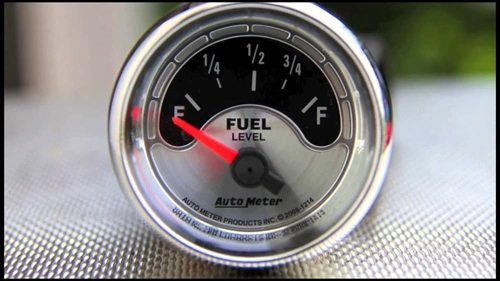No, it is not inherently illegal to run out of gas in Ohio, but it can lead to secondary violations or legal consequences depending on the circumstances. While there is no direct law penalizing drivers for an empty tank, running out of gas can result in unsafe situations, such as blocking traffic or abandoning your vehicle, which may lead to citations or fines.
Legal Implications of Running Out of Gas in Ohio
1. Obstructing Traffic
- If your car runs out of gas and blocks traffic, you may be cited for obstructing traffic under Ohio law. This is particularly relevant on highways or busy roads where a stopped vehicle poses a hazard.
- Ohio Revised Code § 4511.22 requires vehicles to be driven at a speed that does not impede normal traffic flow. A stopped vehicle due to running out of gas may violate this statute.
2. Parking Violations
- Leaving your vehicle unattended on the roadway because it ran out of gas can result in a parking violation.
- Under Ohio Revised Code § 4511.66, it is illegal to stop or leave a vehicle on the highway unless necessary, such as in emergencies.
3. Reckless Driving or Endangerment
- Running out of gas and causing an accident or dangerous situation can result in charges of reckless driving or endangerment. This applies if the driver is deemed negligent for not maintaining enough fuel.
4. Toll Road Violations
- On Ohio toll roads, running out of gas can lead to additional fines or towing fees if the vehicle obstructs traffic or requires assistance from road services.
Situations That May Escalate Legal Consequences
1. Highways and Freeways: Running out of gas on a busy highway can lead to more severe consequences due to the risks posed to other drivers. Law enforcement may issue fines if the vehicle causes traffic disruptions.
2. Emergency Response Costs: In some cases, drivers may be billed for the cost of roadside assistance or towing if their vehicle needs to be removed from a hazardous area, such as a freeway or bridge.
3. Secondary Violations: Running out of gas could lead to secondary violations, such as failure to display hazard lights, improper use of the shoulder, or abandoning a vehicle.
How to Avoid Running Out of Gas in Ohio
1. Plan Your Routes: Check your fuel gauge before long trips and refuel when your tank is low, especially in rural areas where gas stations may be scarce.
2. Keep a Portable Gas Can: Carrying a small, approved portable gas can may save you from being stranded in an emergency.
3. Use Gas Station Apps: Apps like GasBuddy can help locate nearby gas stations and provide information on fuel prices and availability.
4. Pay Attention to Warnings: Modern vehicles provide low-fuel warnings. Pay attention to these signals and refuel promptly.
Penalties for Running Out of Gas in Ohio
1. Fines: Fines for traffic obstruction or parking violations can range from $50 to $150, depending on the jurisdiction and the severity of the disruption.
2. Towing Fees: If your car is towed because it ran out of gas in a hazardous area, you may be responsible for towing and impound fees, which can exceed $100.
3. Points on Driving Record: Certain violations, like reckless driving, may add points to your driving record, potentially increasing insurance premiums.
Related FAQs
Q1. Is running out of gas considered an emergency in Ohio?
Ans: Generally, no. Running out of gas is seen as a preventable situation rather than an emergency. However, if your vehicle poses a danger to traffic, law enforcement may assist.
Q2. Can you call roadside assistance for gas in Ohio?
Ans: Yes, many roadside assistance services, such as AAA, can deliver gas to your location. This service often requires membership or a fee.
Q3. What happens if you run out of gas on the Ohio Turnpike?
Ans: Vehicles that run out of gas on the Ohio Turnpike may be towed to a safe location. The driver may be responsible for towing costs and additional fines.
Q4. Are there laws specifically about running out of gas?
Ans: No. While Ohio does not have laws explicitly penalizing running out of gas, related violations, such as obstructing traffic or abandoning a vehicle, may apply.
Q5. Can running out of gas affect your insurance?
Ans: It could. If running out of gas leads to an accident or damage, it may result in an insurance claim that could increase your premiums.
Conclusion
While running out of gas is not explicitly illegal in Ohio, it can lead to traffic violations, fines, and other consequences if it causes safety hazards or disrupts traffic. Drivers should take precautions, such as monitoring their fuel levels and planning refueling stops, to avoid these situations. Understanding related laws can help motorists stay compliant and safe on Ohio’s roads.

